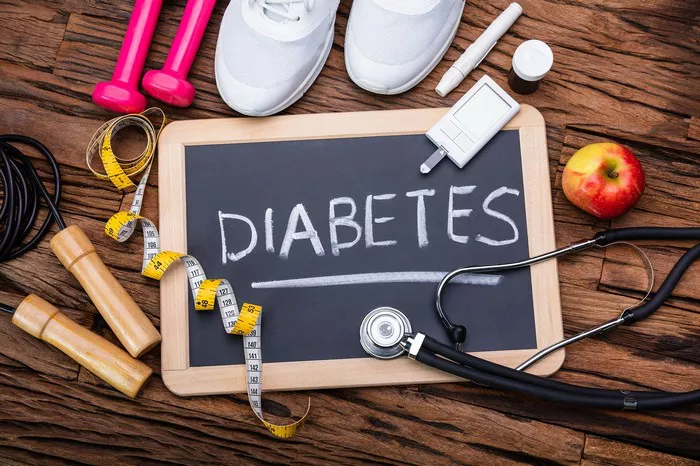Late-onset diabetes, also known as type 2 diabetes mellitus (T2DM), is a chronic metabolic disorder characterized by insulin resistance and relative insulin deficiency. Unlike type 1 diabetes, which typically presents in childhood or adolescence, late-onset diabetes often develops later in life, typically after the age of 40. The prevalence of late-onset diabetes is increasing globally, driven by factors such as aging populations, sedentary lifestyles, unhealthy diets, and obesity. Recognizing the symptoms of late-onset diabetes is essential for early detection, diagnosis, and initiation of appropriate management strategies. In this comprehensive article, we will explore the diverse range of symptoms associated with late-onset diabetes, along with their implications for diagnosis, treatment, and overall health.
Understanding Late-Onset Diabetes (Type 2 Diabetes Mellitus)
Insulin Resistance: Insulin resistance is a key feature of late-onset diabetes, characterized by reduced responsiveness of target tissues, such as skeletal muscle, liver, and adipose tissue, to the actions of insulin. As a result, the body requires higher levels of insulin to maintain normal blood sugar levels, leading to compensatory hyperinsulinemia and eventual beta cell dysfunction.
Relative Insulin Deficiency: In late-onset diabetes, relative insulin deficiency may develop over time as beta cell function declines due to chronic hyperglycemia, lipotoxicity, glucotoxicity, and inflammation. This relative insulin deficiency contributes to impaired glucose metabolism, hyperglycemia, and metabolic disturbances characteristic of diabetes mellitus.
Risk Factors: Several factors increase the risk of developing late-onset diabetes, including age, obesity, sedentary lifestyle, family history of diabetes, ethnicity, gestational diabetes, polycystic ovary syndrome (PCOS), hypertension, dyslipidemia, and metabolic syndrome. Individuals with one or more of these risk factors should undergo regular screening for diabetes mellitus to detect the condition early and initiate appropriate interventions.
Symptoms of Late-Onset Diabetes
Polyuria (Frequent Urination): Polyuria, or excessive urination, is a common symptom of late-onset diabetes. Elevated blood sugar levels lead to increased glucose excretion in the urine, resulting in frequent urination. Individuals may notice a need to urinate more frequently, particularly at night (nocturia), which can disrupt sleep and impact quality of life.
Polydipsia (Excessive Thirst): Polydipsia, or excessive thirst, is closely linked to polyuria in individuals with late-onset diabetes. Dehydration resulting from increased urine output triggers thirst mechanisms, causing affected individuals to drink large volumes of fluids to compensate. Despite increased fluid intake, individuals may still experience persistent thirst and dry mouth.
Polyphagia (Increased Hunger): Some individuals with late-onset diabetes may experience polyphagia, or increased hunger, despite adequate food intake. Insulin resistance and relative insulin deficiency impair glucose uptake and utilization by cells, leading to cellular starvation and increased appetite. This may result in overeating and weight gain, contributing to worsening glycemic control.
Unexplained Weight Loss: Unintentional weight loss may occur in some individuals with late-onset diabetes, particularly in the early stages of the disease. Insulin resistance and relative insulin deficiency impair the body’s ability to utilize glucose for energy, leading to increased breakdown of fat and muscle tissue. As a result, individuals may experience gradual weight loss despite increased appetite and food intake.
Fatigue and Weakness: Persistent fatigue and weakness are common symptoms of late-onset diabetes, often attributed to metabolic imbalances and cellular energy depletion. Fluctuations in blood sugar levels can also contribute to feelings of tiredness and lethargy, impacting daily activities and productivity.
Blurred Vision: Changes in vision, such as blurred vision or difficulty focusing, may occur in individuals with late-onset diabetes due to fluctuations in blood sugar levels. High blood sugar levels can affect the shape and flexibility of the eye’s lens, leading to changes in vision that may improve with better glycemic control.
Slow Wound Healing: Impaired wound healing and frequent infections may occur in individuals with late-onset diabetes due to compromised immune function and poor circulation. Chronic hyperglycemia can impair the body’s ability to fight infections and repair damaged tissues, leading to delayed wound healing and increased susceptibility to infections.
Numbness or Tingling in Extremities: Peripheral neuropathy, a common complication of late-onset diabetes, may cause numbness, tingling, or burning sensations in the hands and feet. Chronic hyperglycemia and impaired blood flow can damage nerves, leading to sensory disturbances and loss of sensation in the extremities.
Implications for Diagnosis and Treatment
Early recognition of the symptoms of late-onset diabetes is crucial for timely diagnosis and initiation of appropriate treatment to prevent complications and improve overall health. Healthcare providers use a combination of clinical symptoms, laboratory tests, and diagnostic criteria to diagnose late-onset diabetes, including fasting plasma glucose levels, oral glucose tolerance tests, and glycated hemoglobin (HbA1c) levels. Once diagnosed, treatment for late-onset diabetes typically involves lifestyle modifications, such as dietary changes, regular physical activity, weight management, and smoking cessation, along with oral antidiabetic medications, injectable therapies, and insulin therapy as needed.
Conclusion
Late-onset diabetes, or type 2 diabetes mellitus, is a chronic metabolic disorder characterized by insulin resistance and relative insulin deficiency. The symptoms of late-onset diabetes can vary widely in presentation and severity, ranging from classic signs of hyperglycemia such as polyuria, polydipsia, and polyphagia to less common manifestations such as unexplained weight loss, fatigue, blurred vision, and slow wound healing. Early recognition of these symptoms is crucial for timely diagnosis and initiation of appropriate treatment to prevent complications and improve overall health and well-being. Through a proactive approach to screening, diagnosis, and management, individuals with late-onset diabetes can take control of their condition and lead fulfilling lives despite the challenges posed by this chronic disease.



























